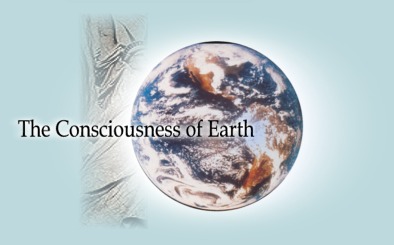|
|
Two Apposite Excerpts
An election year offers special opportunities to observe the sociopoliticoeconomic mechanism in operation. "From the true opponent, infinite strength flows into me," Kafka said. In the hope that this may be so, I would like to draw attention to two passages that still seem to me to show with particular clarity what we, the humans, are up against..
At the time these were written, in the 1980's, I hadn't yet happened upon Emerson's observation that "things are in the saddle/ And ride mankind." That, in the mid-nineteenth century, already said it all. But the writing of these passages had helped me to understand how this happens and why it has everything to do with the configuration of our current system (government of the people by the media for the corporations). Most recently, I have been reminded of this by Michael Pollan's The Omnivore's Dilemma (2006). The second excerpt begins to suggest the kind of action that is needed to reassert human priorities, and to urge such action was the purpose of the poem.
September 24, 2012
from Chapter VII ..... ... the world made and unmade by the devices of the mind so formed now threatens to unmake the mind itself. More even than the exhaustion of resources, the poisoning of earth, water and air, there looms above our human diminution this hypertrophy of the hierarchic mode in thought and action, which occurs in consequence of needs we must provide at more and more removes, a lengthening chain. When every home fetched its own wood and water and every village had its skillful hands to forge and weave and carve what was required for rural life, then kings might rule afar and nobles might oppress, but close to home there was an independence of the person, a space in which to think one’s thoughts, and sing, and speak one’s mind, and recognize a friend – or so we now imagine it, forgetting what was perhaps a brutish feudal dark from which we sought to free the miserable by progress equal to enlightenment, twinned as were its beginnings to rebellion against the ancient hieratic fetters of church and sanctified autocracy and their complicit myths. Newborn Invention clamored for freedom to survey the world with fearless eyes, untinted by old schemes. Heedless of all traditional dress and bonds, the mind Invention hailed as principle believed a common reason could enact laws that would check the violent and the cunning and make the world a place where every mind might grow unfolding to its fullest flower – a dream that floated long, a pretty rainbow, on rivers flammable with industrial waste. For with each road and pipe and wire and cable that now supply what once lay within reach, another metal shoot of hierarchic control enters the common earth and air. It is the Company that brings the water from distant dam, the heat from far-off mine, the voice of kin from the antipodes to which it sent him off to earn his bread and plant another runner of its stem. And as the organizations grow and join, subsuming every enterprise they meet (consumers will not stop them; see them still shopping for what is shiniest and cheapest, invisible the talismans of trust relinquished with each coin they spend that way), the hierarchy tends to come unstuck from the community it once supported – the family, the town, even the nation – while government and law fall far behind, dwarfed by complexity beyond provision, entwined with what they struggle to restrain. The people’s needs become subordinate to an autonomous impulse of expansion, uncontrolled increase of control and profit is paramount, and necessarily so, for other such machines made out of men watch to snap up missed opportunities. They fashion men who cannot love themselves, knowing by what means they have had to rise far from the moderating eye of justice or wisdom conscious of the needs of all. Here human beings avoid each other’s eyes and hide their thoughts, knowing that no bond holds. There is not much that they can tell their children, so that a silence opens in the home, but for this too the corporate mind has found a cure: a box of noise and flickering shadows to fill the vacant mind with vacancy and hunger for what will not satisfy, to make the home a marketplace, suborn the vote, till none govern but by its leave. And some upon the streets you see whose ears are filled with whispering phones that come between them and whatever thoughts they may have left, next best thing to an electrode in the brain: these are the peons of the system, those its peers, who cease from song to build machines that ape and over-ape the robotry of human thought, when it is only this, until invention with mad pride aspires to fashion circuits that outmode the mind. We know the harm; and yet the fascination of gadgets grows; we crave them more than bread, a craving that is in its final essence a wish to fuse with hierarchic power which, having gobbled up the rest of life, now beckons with the sole remaining promise of comfort – outward comfort – and survival. So, it is said, a captive rat will press the button that will shock its brain with pleasure although food lie beside it, and it starve. – How then shall creatural mind, so undermined by the inane, take thought for the creation?
from Chapter 13
Democracy: that is the name by which we know that leave of absence from compulsion which still is granted us. Its premises are: that each one of whatsoever rank shall have one voice to choose those who shall rule, and that the authorities shall recognize as greater than themselves the laws that shield the citizen from the high hand of power. The law and universal suffrage keep watch on the hierarchies built by function, so that the dignity of all is guarded and a place cleared for free exchange of thought. That is democracy; it is a form effective while, to the extent to which we truly live within it, have not moved elsewhere and left the empty scaffold standing. And if that has occurred, then it must be (seeing that we have placed our faith in form) that in our freedom's diagram some corner was left unfinished, or an entire side, so that we have walked out into compulsion unawares, and find ourselves benighted, far from the house in which we thought to dwell. It is perhaps that in their haste to bar the door against the power to coerce, the founders did not wholly have in mind that there's an obligation to instruct, which is not won by contest at the polls, nor purchased with the chair of any office, but laid by knowledge, insight, conscience, on the one who sees. Whoever has felt that hand upon the shoulder, knows that truth is not decided by majority approval, so that to step into the election ring to prove it, but betrays it at the start. And therefore where the people place all faith in the electoral process, those who see have little choice but to look tongue-tied on while multifarious temptations tunnel their way into the house, and clear it out. Not all at once perhaps, but gradually, as weeds and vermin gradually discover the fields we clear, the houses that we build, and change themselves, the better to infest them, did those who take the number for their base learn how to play to ignorance, appeal to prejudice, hold up the seeming-easy answer to the questions of the crowd that less and less knows what it asks; until today they sell themselves to those whose hands are on the dials that synchronize the music, the simulacra, for the mind-stunned mass: they speak like actors what they did not write and thereby win the power to decide on what they little understand, as pressure by bloc and contribution may determine; starting perhaps from the hope of doing good, they soon find strings being tied around their wrists, till the watchers tire of the too-evident puppet-play, and leave their choice uncast. And even those whom urgent warning wakens with message for the whole, appear to take the pattern of their action from this game, competing for the attention of the public with others whom a different urgency, and yet the same, impels. Those who most fear the withering of earth, focus their sight upon pollution and extinction, seldom looking where others point to signs of strain in the economic girders that uphold concern itself, when what was made with care is thrown into one market-scale with wares stamped out beneath no regulating law, while those who fear the stopping of the wheels that feed us, see the friends of earth as foes, and even more those who present themselves as guardians of human freedom, cleave counsel as to what is most to be feared: the looming of a massive front of force across the ocean, magnified still more from our opponent lookout through the lenses ground by those who stand to gain from strife, or the metastases of mercenary reigns of torment that crush down earth's poor lest they should rise and join our profit's foes, led by bands that often scheme to be, empowered, no less fierce than the deposed, so that in many a foul tourney flutters "freedom and justice," like a stolen favor; and those who fear for peace, and those who fear conquest by those whose sole desire is might (which would not lead to peace, but rather sink the world in war beyond the call of conscience), cannot admit, each side, that it has dreamed the other's nightmare with its own, but rather admit one danger only, which is then fathered upon the folly of the opponent. Where two roads fork, yet both lead to one doom, easier it is to run divided forward under opposing standards, than to stay in one place, and think of turning back, or dig with deeper thought to tunnel under the wall that stands upon all obvious ways. To twist the lures for hypnotized opinion that strikes at any bait, so shape and color be fashioned to its reflexed expectation, and to map out, through the mined field, the sea dotted with Scyllas and Charybdises, the one course that would get us through unscathed — these are two different arts. The second must begin far from the market and the polls – and maybe far, for now, from learning-places that seem but markets of the intellect, where technical contrivance overtowers humanity, and profitable theory thrives upon differences that advance the individual career, but seldom tend to the building of a common world.
|

